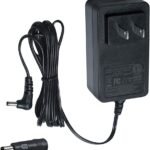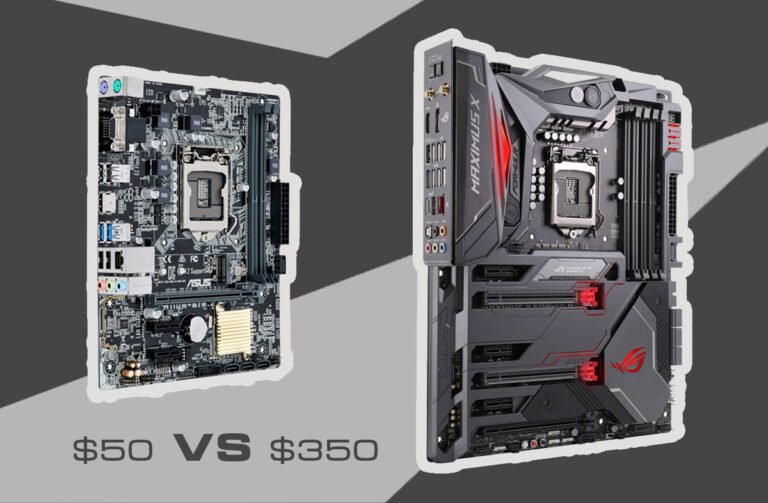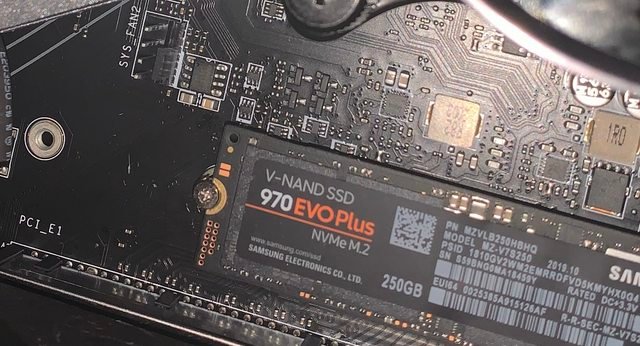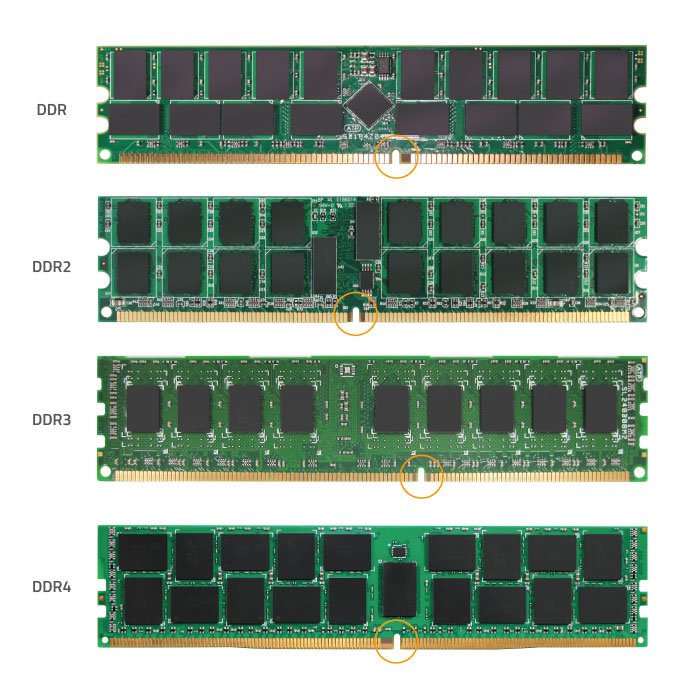Can a Power Supply Be Too Powerful
Yes, a power supply can be too powerful. If the power supply is too powerful for the device it is powering, it can damage the device. The device may not be able to handle the amount of power being supplied and could overheat or catch fire.
It is important to check the specifications of both the power supply and the device before connecting them to make sure they are compatible.
You might be wondering, can a power supply be too powerful? The answer is yes! If you have a power supply that is too powerful for your needs, it can actually cause problems.
For example, if you have a power supply that is too powerful for your system, it can overheat components and potentially damage them. Additionally, if your power supply is not properly cooled, it can also overheat and cause damage.
So how do you know if your power supply is too powerful?
There are a few things to look for. First, check the amperage rating of your power supply. If it is significantly higher than the amperage required by your system, it may be too powerful.
Another way to tell if your power supply is too powerful is to check the voltage output. Power supplies typically have a range of voltages they can output (for example, +12V to +24V). If the voltage output of your power supply exceeds the maximum voltage supported by your system components, it could damage them.
Finally, you can also check the wattage rating of your power supply. This number should be close to the total wattage draw of all the components in your system combined. If it significantly exceeds this number, then it may be too powerful for your needs.
In general, having a slightly more powerful than necessary power source won’t cause any harm as long as everything else in your system can handle the increased load without issue. However, if you have any doubts about whether or not your system can handle a more Powerful PSU safely, err on the side of caution and get one that’s just barely enough to meet your needs instead.
Can a Psu Be Too Powerful Reddit
A PSU, or power supply unit, is the component in a computer that provides power to all of the other components. The wattage rating of a PSU is important because it determines how much power the unit can provide. A higher wattage means more power and a lower wattage means less power.
Many people on Reddit have asked if a PSU can be too powerful for their needs. The answer is yes, but it’s not as simple as that. If you have a high-end graphics card that requires a lot of power, then you’ll need a high-wattage PSU to provide enough power.
However, if you don’t have any high-end hardware and your computer only uses around 300 watts of power, then you could get away with using a lower-wattage PSU.
The bottom line is that it depends on your specific needs. If you’re not sure how much power your computer will need, err on the side of caution and get a higher-wattage PSU.
Is It Bad to Have a Too Powerful Power Supply
No, having a too powerful power supply is not bad. In fact, it’s actually quite common. Many people have power supplies that are more powerful than they need because it’s often more affordable to buy a higher-wattage unit than it is to get one that’s just right for their needs.
The excess capacity can also be helpful if you ever decide to upgrade your system or add new components that would require more power.
Power Supply Calculator
Do you need help picking out the right power supply for your needs? If so, you’ve come to the right place! In this blog post, we’ll go over everything you need to know in order to use a power supply calculator.
First, let’s start with a basic understanding of what a power supply is and does. A power supply is responsible for providing your computer with the correct amount of electricity. It converts AC current into DC current, which is then used by your computer components.
Now that we have a basic understanding of what a power supply is, let’s move on to how to use a power calculator. There are two main types of calculations that you can do: estimating maximum wattage and determining amperage at a specific voltage.
If you want to estimate the maximum wattage that your system will ever need, it’s best to add up the wattage requirements of all your components.
You can find this information in the product manuals or on the websites of most component manufacturers. Once you have all the wattages added up, add 20-30% more to account for any unexpected spikes in power usage. This number is your estimated maximum wattage requirement.
Next, let’s say you want to know how much amperage your system will draw at a specific voltage (for example, 12V). To calculate this, simply divide the total wattage by the voltage (in our example: 120W / 12V = 10A). This number is called the “load” and represents how much amperage your system will draw at that specific voltage.
Keep in mind that most PSUs have multiple +12V rails – each rail has its own load limit which must not be exceeded! Make sure to distribute your components evenly across all available +12V rails for optimal performance and safety.
That’s all there is to using a power supply calculator!
By following these simple steps, you can easily figure out exactly how much power your system needs and ensure that you’re using the right PSU for the job.
Under What Circumstances Might It Be Better to Buy a Higher-Wattage Power Supply?
There are a few circumstances in which it might be better to buy a higher-wattage power supply. If you plan on running multiple high-end graphics cards or overclocking your CPU, you will need more power. Additionally, if you have a lot of external devices plugged into your computer, like USB devices or hard drives, that can also increase the power draw.
In general, it’s better to err on the side of too much power rather than not enough. That way, you won’t have to worry about your components being underpowered and causing instability or poor performance.
What Happens If Your Power Supply is Too Weak
Most electronic devices require a specific amount of power to function properly. A power supply that is too weak will not be able to provide enough power to run the device, which can lead to a number of problems.
If your power supply is too weak, it could cause your device to overheat.
This is because the device will be working harder than usual to try and get the power it needs from the insufficient supply. Overheating can damage electronic components and shorten the lifespan of your device.
Your device may also not work properly if its power supply is too weak.
This could manifest in anything from strange noises or glitches, to the device simply not turning on at all. If you notice that your device isn’t working as it should, one of the first things you should check is whether the power supply is providing enough juice.
In some cases, using a power supply that is too weak can actually damage your devices beyond repair.
If this happens, you’ll likely have to replace the entire device – so it’s definitely worth avoiding!
To make sure you’re using an appropriate power source for your devices, always check what voltage and amperage they require before plugging them in. Using a higher voltage than necessary won’t harm most devices, but going below the minimum requirements could spell trouble for both yourdevice and your wallet.

Credit: www.bbc.com
What Happens If Power Supply is Too High?
If the power supply voltage is too high, it can damage the electronic components in your computer. The higher the voltage, the more likely it is to damage your components. If you have a very high-end graphics card, for example, it can be especially vulnerable to damage from a high voltage power supply.
Is 850W Power Supply Too Much?
Nowadays, people are always in search of better options to improve their system’s performance. This has led to the development of powerful components that require more power than ever before. As a result, the question “Is 850W power supply too much?” has become a common one.
To answer this question, we need to consider two things: first, what is the maximum wattage that your system can handle and second, what is the maximum wattage that your power supply can provide.
Your system’s maximum wattage is determined by its componentry. If you have a high-end graphics card or processor, for example, they will likely have higher power requirements than lower-end counterparts.
As such, it’s important to check your component’s specifications to see how much power they draw so that you can select an appropriately-sized power supply.
As for the second consideration – the maximum wattage that your power supply can provide – this will be determined by its capacity and efficiency. A higher-capacity PSU will obviously be able to deliver more watts than a lower-capacity one but it’s also important to consider efficiency when making your decision as this impacts how much heat is produced and wasted energy (both of which could shorten your PSU’s lifespan).
In general, PSUs with an 80+ certification are considered good quality; these units are at least 80% efficient under typical loads meaning less heat and wasted energy.
Is It Okay to Have an Overkill Power Supply?
An overkill power supply is one that provides significantly more power than what your system requires. While this may seem like a good idea, it can actually lead to problems.
One issue is that an overkill power supply will likely have a higher wattage rating than what your system can actually handle.
This means that you could end up damaging your components by feeding them too much power.
Another problem is that an overkill power supply will often be less efficient than one that’s properly sized for your system. This means that you’ll end up wasting energy, and generating more heat inside your case.
Ultimately, it’s best to choose a power supply that’s just powerful enough for your needs. That way, you’ll avoid any potential damage to your components and save yourself some money in the process.
Is 750 Watt Power Supply Too Much?
When it comes to powering your PC, there is no such thing as too much power. A 750 watt power supply can easily handle all of the components in a high-end gaming rig, and leave some headroom for future upgrades. If you are looking for a new power supply, don’t be afraid to get one with more than enough power for your needs.
Why High Wattage Power Supplies Are Stupid
Conclusion
The blog post argues that a power supply can be too powerful, and that this can cause problems for a computer. The author gives several examples of how this can happen, and concludes that it is best to err on the side of caution when choosing a power supply for a computer.









